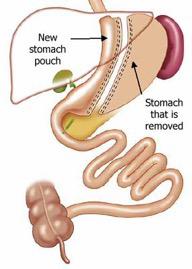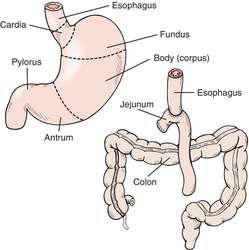What is Gastrectomy surgery?


A gastrectomy means the entire or portion of the stomach is surgically removed. The stomach is an integral component of the digestive system that processes nutrients in foods consumed and helps remove waste products from the body.
There are three gastrectomy surgery types:
- Partial gastrectomy – A partial gastrectomy involves removing a portion of the stomach, generally removed from the lower half.
- Full gastrectomy – The entire stomach is removed by full gastrectomy.
- Sleeve gastrectomy – The left stomach portion is removed with a sleeve gastrectomy. This is generally done during a weight loss surgery.
What are the symptoms leading to doctor’s recommending – Gastrectomy?
- Cancers of Stomach
- Abdomen / Stomach ache
Evaluations for Gastrectomy
- CT scans
- X-rays
- Endoscopic ultrasound
- Biopsy
- Blood tests
Surgical Approaches for Gastrectomy
A gastrectomy may be performed using two distinct methods:
- Open surgery – Open surgery involves a large single incision. The skin, muscle, and tissue will be pulled up by the doctor in order to access the stomach.
- Laparoscopic surgery – Laparoscopic surgery is a minimally invasive procedure. It includes small incisions and surgical devices. It’s a less painful surgery that enables a faster recovery.
Estimated Costs
| Hospital | City | Cost of Evaluations | Cost of Surgery |
| Artemis Hospital | Gurugram | USD 1000 | USD 10000 |
| Max Super Speciality Hospital | New Delhi | USD 1000 | USD 10000 |
| Indraprastha Apollo Hospital | New Delhi | USD 1000 | USD 11000 |
| Jaypee Hospital | Greater Noida | USD 1000 | USD 11000 |
| Global Hospital | Bangalore | USD 1000 | USD 10500 |
| Fortis Hospital | Mumbai | USD 1000 | USD 12000 |
| Nanavati Super Speciality Hospital | Mumbai | USD 1000 | USD 12000 |













